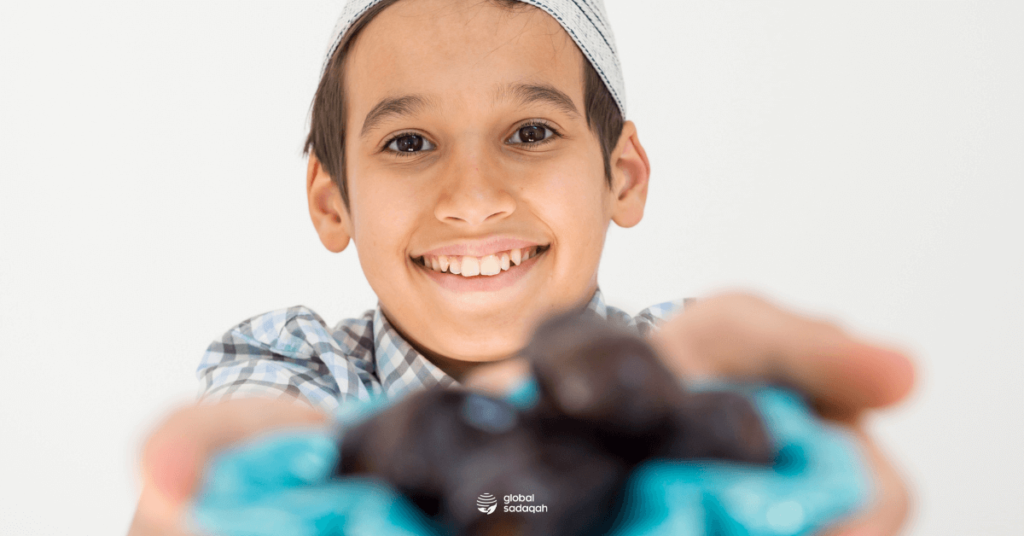Islam is a beautiful religion. It teaches us compassion through the act of sadaqah. Sadaqah, or voluntary charity, is a selfless deed that is highly recommended in Islam as a sign of one’s gratitude to the Creator as mentioned in the Quran and Hadith.
The term covers a wide range of good deeds such as giving and helping others. Not only does sadaqah bring the doer closer to Allah but it also serves as a support system to those in need. Let’s take a look at what the Prophet ﷺ said about the virtuous act in these eleven hadiths about sadaqah.
1. Sadaqah is random acts of kindness and good deeds
Often we think of sadaqah as being monetary in nature but Islam teaches us otherwise. The Prophet ﷺ said that sadaqah comes in many forms and it applies to any acts of kindness and good deeds.
Abu Dharr narrated that the Prophet ﷺ said, “You putting some of the water from your bucket in your brother’s bucket is sadaqah. You removing stones, thorns and bones from people’s path is sadaqah. You guiding a man in a place where there are no guides is sadaqah.” [Al-Adab Al-Mufrad]
2. Enjoining all that is good is also sadaqah
In Islam, enjoining good and forbidding wrong (amar ma’ruf and nahi munkar) is fard kifayah (collective obligation) upon Muslims. Allah says in the Qur’an,
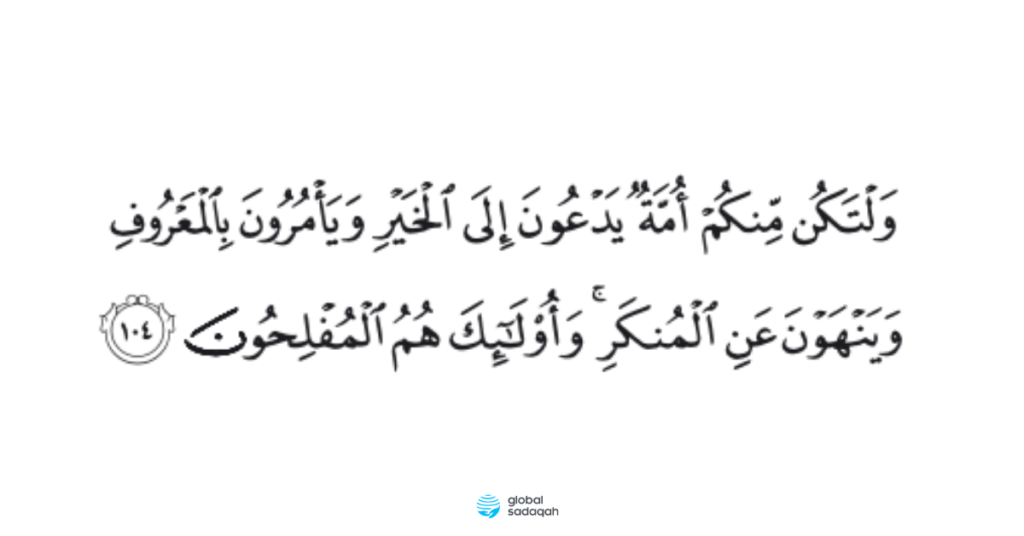
“And let there be [arising] from you a nation inviting to [all that is] good, enjoining what is right and forbidding what is wrong, and those will be the successful.” [Surah Aal Imran: 104]
Interestingly, the act is also considered sadaqah in Islam. This is based on a hadith about sadaqah; narrated Jabir bin `Abdullah, the Prophet ﷺ said, Enjoining all that is good is a sadaqah.” [Sahih al-Bukhari]
3. What you feed yourself and your dependants, too, is sadaqah

Though bringing food to the table is technically our everyday responsibility upon ourselves and those depending on us, Islam views this as a beautiful act of sadaqah too.
Al-Miqdam heard the Prophet ﷺ said, “What you feed yourself is sadaqah. What you feed your child, your wife and your servant is sadaqah.” [Al-Adab Al-Mufrad]
4. Sadaqah is due upon every Muslim every day
Now that we have learnt that the word sadaqah covers a wide spectrum of good deeds and acts of kindness, it’s important to emphasise that Islam urges us to do it every day.
Abu Hurairah narrated that the Prophet ﷺ said: “Sadaqah is due on every joint of a person, every day the sun rises. Administering of justice between two men is also a sadaqah. And assisting a man to ride upon his beast, or helping him load his luggage upon it, is a sadaqah; and a good word is a sadaqah; and every step that you take towards prayer is a sadaqah, and removing of harmful things from the pathway is a sadaqah.” [Sahih Muslim]
5. The upper hand is better than the lower hand
While offering sadaqah in the form of giving and helping others serves as a support system to those in need, the Prophet ﷺ encourages Muslims to be the upper hand as those who give are better than those who receive.
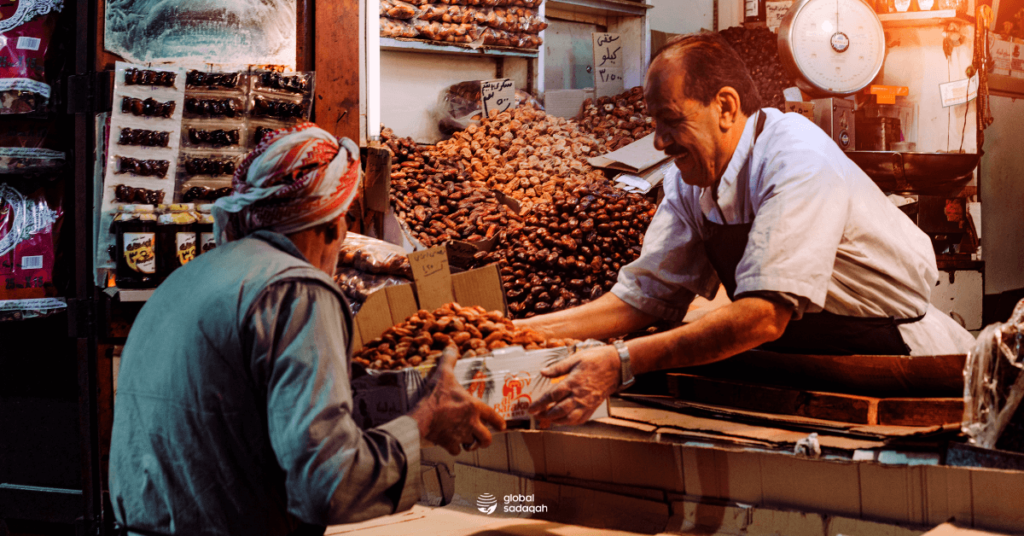
Hakim bin Hizam narrated that the Prophet ﷺ said, “The upper hand is better than the lower hand (i.e. he who gives in charity is better than he who takes it). One should begin by giving to his dependents. And the best sadaqah is that which is given by a wealthy person (from the money which is left over after his expenses). And whoever abstains from asking others for some financial help, Allah will provide for him and save him from asking others; Allah will make him self-sufficient.” [Sahih Bukhari and Muslim]
Related: The Power of Sadaqah: 7 Benefits of Giving Sadaqah
6. If you can’t offer other forms of sadaqah, refraining yourself from evil is counted as sadaqah for you
Islam does not burden its followers more than what they can bear. This applies to sadaqah as well. If you can’t find anything to give as sadaqah, or lend a helping hand to someone in need, or enjoin what is good, the least you can do is to refrain yourself from committing evil. According to the Prophet ﷺ, this will be counted as sadaqah for you.
Abu Musa reported that the Prophet ﷺ, “Every Muslim must give sadaqah.” They said, “And if he does not find anything (to give)?” He replied, “Then he should work his hands, benefit himself and then give sadaqah.” They asked, “And if he is unable to or does not do it?” He replied, “Then he should help someone with a great need.” They said, “And if he does not do it?” He replied, “Then he should command the good or command the correct.” They said, “And if he does not do that?”
They said, “He should refrain from evil. That is sadaqah for him.” [Al-Adab Al-Mufrad]
7. You can give sadaqah on the behalf of the deceased
If your loved ones have passed away, and you wish to do something for their good, you can offer sadaqah on behalf of them. This is because the deceased will benefit from sadaqah given on their behalf and its reward will reach them.
The GlobalSadaqah platform, through its special feature, too, allows you to dedicate your sadaqah on behalf of others, including the deceased.
Narrated Ibn ‘Abbas, a man said: Messenger of Allah, my mother has died; will it benefit her if I give sadaqah on her behalf? The Prophet ﷺ said: Yes. He said: I have a garden, and I call you to witness that I have given it as sadaqah on her behalf. [Sunan Abi Dawud]
8. The reward of sadaqah jariyah outlasts death
When we die, we will leave everything behind. All our good deeds will also come to an end, except for three. Sadaqah jariyyah, or a continuous and ongoing charity, such as partaking in the building of a mosque, a school, a well, among others, planting trees and giving one a copy of the Qur’an, is one of the good deeds that follows us to the grave. The rewards of our sadaqah jariyyah remain for as long as it is used.
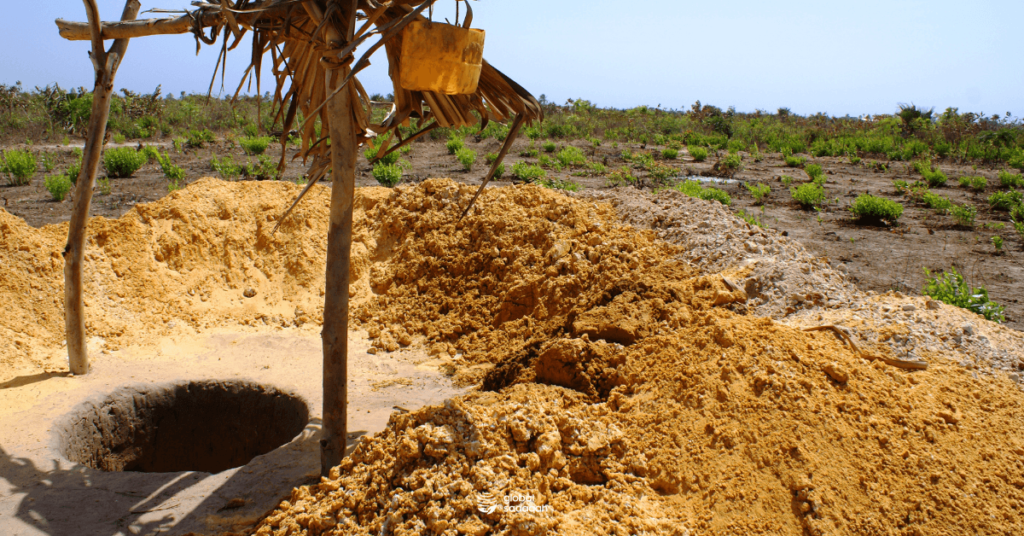
It was narrated from Abu Hurairah that the Prophet ﷺ said, “When a man dies all his good deeds come to an end except three: Ongoing charity (sadaqah jariyah), beneficial knowledge and a righteous son who prays for him.” [Sunan an-Nasa’i]
Related: 5 Types of Sadaqah Jariyah
9. Sadaqah extinguishes our sins just like water extinguishes fire
Since sadaqah is a deed most loved by Allah, the rewards its doers will receive are bountiful. One of the most significant benefits of sadaqah to its doers in the Hereafter is that it expiates the doer’s sins like water extinguishes fire.
The Prophet ﷺ explained this in a hadith narrated by Ka’b bin Ujrah, “Salat is clear proof, and Sawm (fasting) is an impregnable shield, and Sadaqah (charity) extinguishes sins just as water extinguishes fire.” [Jami’ at-Tirmidhi].
10. Those who give sadaqah so secretly will be among those shaded by Allah on the day of judgement
On the day of judgement, there will be no shade except the shade of Allah. Those who give sadaqah in secret that his left hand does not even know what his right hand has given are so beloved by Allah that Allah will shade them by His Shade, among seven other people.
The Prophet ﷺ said, “Seven (people) will be shaded by Allah by His Shade on the Day of Resurrection when there will be no shade except His Shade.
(They will be), a just ruler, a young man who has been brought up in the worship of Allah, a man who remembers Allah in seclusion and his eyes are then flooded with tears, a man whose heart is attached to mosques (offers his compulsory congregational prayers in the mosque), two men who love each other for the sake of Allah, a man who is called by a charming lady of noble birth to commit illegal sexual intercourse with her, and he says, ‘I am afraid of Allah,’ and (finally), a man who gives in charity so secretly that his left hand does not know what his right hand has given.” [Sahih al-Bukhari]
11. Those who regularly give sadaqah will be called to enter Jannah from Baab as-Sadaqah
Every Muslim’s ultimate goal is to enter Jannah. Those who believe in tawheed (the oneness of Allah) and adhere to the teachings of Islam will have the privilege to enter Jannah from any doors they wish.
Those who regularly give sadaqah in the way of Allah, be it in the form of services, kind words, or monetary gifts, to their family, orphans, or those in need, will be called to enter Jannah through a special door called the Baab as-Sadaqah (the door of sadaqah).
The Prophet ﷺ said, “Anybody who spends a pair of something in the cause of Allah will be called from all the gates of Paradise, ‘O Allah’s slave! This is good.’ He who is amongst those who pray will be called from the gate of the prayer (in Paradise) and he who is from the people of Jihad will be called from the gate of Jihad, and he who is from those who give in charity will be called from the gate of charity, and he who is amongst those who observe fast will be called from the gate of fasting, the gate of Raiyan.” [Sahih al-Bukhari]
Key takeaway
In conclusion, sadaqah is a beautiful act that is due upon every Muslim every day. It instills compassion and empathy in the heart of the doers and eases the beneficiaries in multiple ways.
Every act of kindness is sadaqah (Sahih Muslim) and Allah loves those who offer sadaqah so dearly that on the day of judgment, He will shade those who give sadaqah in complete secrecy with His Shade and call those who give sadaqah regularly to enter Jannah from Baab as-Sadaqah.
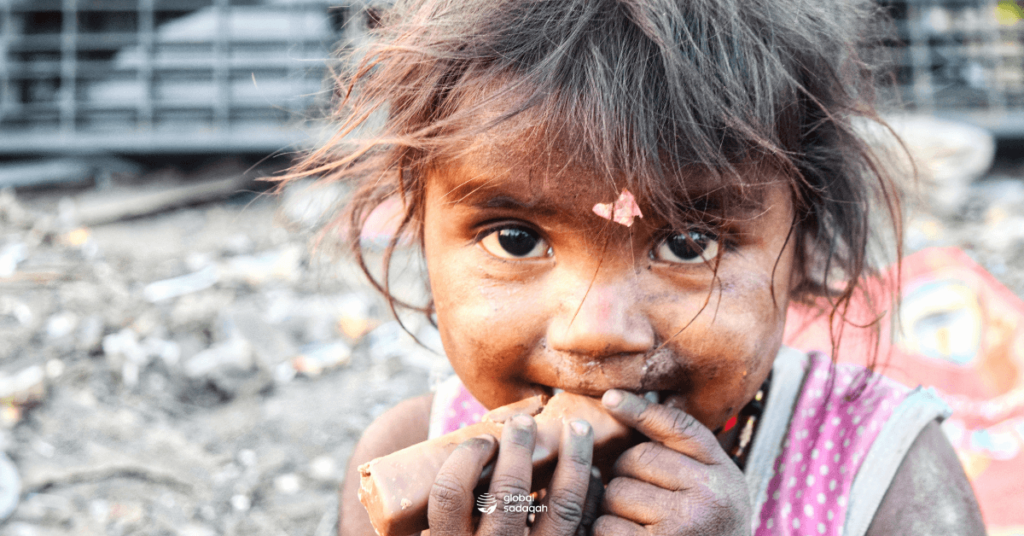
Give sadaqah and help those in need around the globe today via GlobalSadaqah. May we be among those who enter Jannah through Baab as-Sadaqah.
